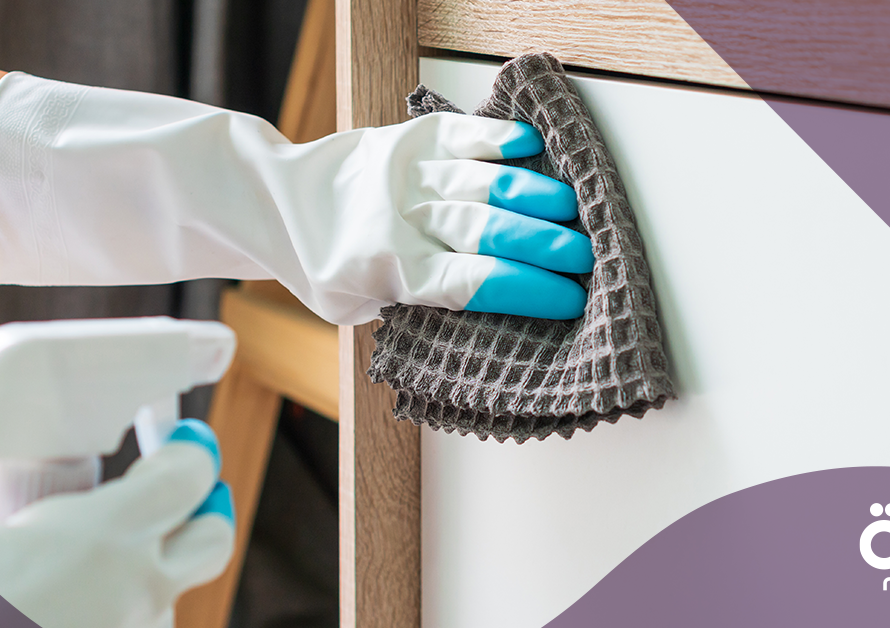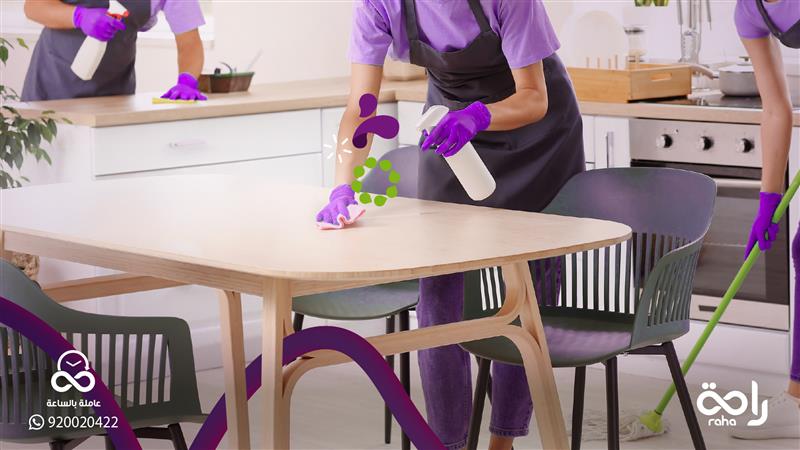If you’re looking for some help with your chores and don’t know which to choose, then let me tell you: a live-in domestic worker wins in some cases, and an hourly domestic worker wins in others. Here are 7 differences to help you choose which is best for you and how to win your situation.
1. Flexibility in working hours.
A live-in domestic worker may work 8 hours a day and up to 12 hours sometimes, and of course, there’s a legal limit for daily resting hours and weekend rest. Yet, an hourly domestic worker has limited time. Whether the required tasks are done or not, she’ll leave. Her visit must also be scheduled earlier in the week. So, in terms of working-hour flexibility, a live-in domestic worker wins.
2. Work stability.
A contract for a static live-in domestic worker starts at one month and goes up to two years. If everything turns out well with the worker, the tasks you give her will be done every single day, even if you’re busy. You don’t drop scheduling her next visit, and you don’t underestimate how many hours you’ll need to do chores. On the other hand, you choose between 2 shifts a day for the hourly worker, a morning one and an evening one, and you may get a new worker every time and educate her again about your house’s special requirements. This is a situation where live-in workers win.
3. The worker may change every time.
If you’re using the Raha app, there’s a possibility to choose the same Domestic Worker on every visit, receiving the same worker many times. Still, it’s just a possibility, controlled by other circumstances, whether the worker is about to go back to her home country or the worker’s schedule has been booked by others. But when it’s a live-in domestic worker, you have the same person who knows your priorities, your standards, and your preferences in cleaning, cooking, and caring. This is also, I think, a situation where a live-in worker wins.
4. No accommodation needed.
It’s not optional; it’s kind of legally mandatory to provide your live-in domestic worker with an accommodation that gives her enough privacy and enough rest. This is a situation where an hourly worker wins if you don’t have enough space in your house and can’t afford a side small one.

5. Costs.
Hourly domestic workers are always better for smaller budgets and more controllable costs. You’re never charged for out-of-work hours. So, this is also an extra win for hourly domestic workers.
6. Big families vs. small ones.
Being a live-in domestic worker for a married couple is awkward. If there are children, an hourly domestic worker can also be fair enough. Big families, families with the elderly that need extra care, or many children around; this is when a live-in worker is needed the most. So, if you have a small family, then an hourly worker wins.
7. An extra family member to take care of.
The domestic worker takes care of the family’s daily requirements, of course, yet the family also takes care of the domestic live-in worker when she’s sick, sad, needs something, or needs someone to take care of. Domestic workers have medical insurance covered in the clinic and at the hospital, but not when they go home, where the only family they know is around.
On the other hand, you’re building your own long-term relationship with your live-in worker, and you become her main source of education and her main director. You become like an older sister to your live-in worker; you see her every morning and every evening, and you talk more than you talk to anyone else.
So, building a healthy relationship with your live-in worker is essential in this case. And if you don’t have the capacity for it, then it’s always a good option to have an hourly one.
Things in common between hourly and full-time workers on the Raha app:
1- Both get paid by Raha.
2- Both are legally covered by Raha.
3- Both are medical and social insurance covered by Raha.
4- Both can be replaced without incurring any additional costs.
5. Last but not least, you have many packages to choose from on the Raha app, for both hourly and the live-in domestic worker.
Pick your winning situation, whether it’s a live-in (Muqeema) or an hourly domestic worker, from the Raha app, right here.







